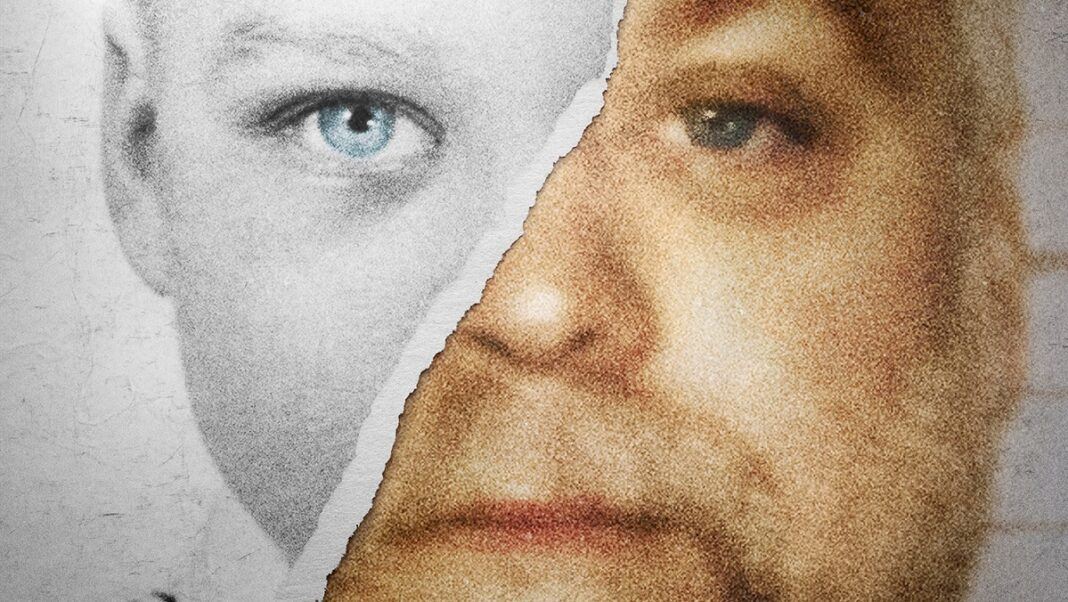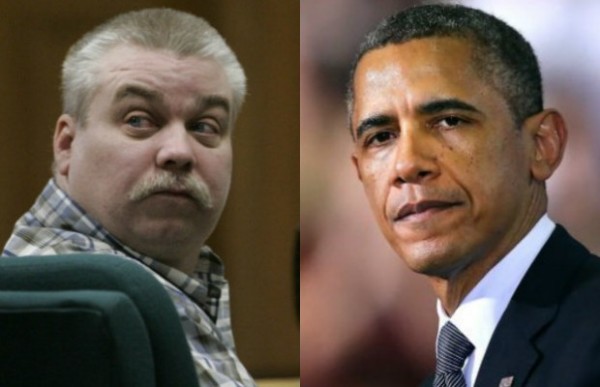
Making a Murderer Episode 8
If you’re looking for a happy start to this “Making A Murderer” episode then you are the ultimate optimist or you hate the Avery family.
We see Steven’s dad wandering around one of his shops where he had planned on raising fish as a side business after his son was released the first time he was in prison. There are few references to what happened to Steven because of his first wrongful conviction.
The loss of reputation is brought up by Dean Strang and of course the 18 years away from his family is insane, knowing he was innocent the entire time.
I would have loved to be in the courtroom for the closing arguments. I imagine the opening and closing are the highlights of cases like this since the testimony of each witness can get mundane over the long haul. The opening and closing arguments would be the SportsCenter of the trial.
Buting and Strang do not shy away from pointing out Lieutenant Lenk as the man responsible for planting evidence to make Avery look guilty. If the prosecution was concerned about the local cops being painted as crooked early in the trial, they had to be cringing as the defense put Lenk out there as a liar. Strang telling the jury that Lenk lied twice right in front of them under oath.
I would guess Dean Strang and Jerry Buting are at least twice as smart as me. Certainly better equipped to handle a jury than myself. But I feel like telling jurors that the cops felt like they were just trying to frame a guilty man was a mistake. If I’m a “hang em high” country boy on that jury, that statement might sway me to vote guilty since I wouldn’t care if Avery was set up or not. After all the defense just said the cops were just making sure a guilty guy got convicted by “going the extra mile.”
Ken Kratz really goes to the extreme telling the jury that if they don’t believe Steven Avery killed Teresa Halbach, then they must believe that the local cops killed her. That’s a big leap in logic, but a usable tactic since the judge would not allow the defense to offer up other suspects in this case. Much easier for Kratz to make jurors skeptical of the only other suspect available being the police instead of a former lover of Halbach.
After the closing arguments, the jury did not come back quickly with a verdict which would have been a bad sign. One juror did asked to be dismissed for a family emergency which the judge allowed after checking out the situation himself.
Avery got to choose whether to accept an alternate juror or have a mistrial. A mistrial would have started the case all over and I’m sure would have cost more than Avery had left to pay his lawyers for the second time.
So he went with the backup juror.
I cringed when Avery’s mom said she felt good about the upcoming verdict. She said, “God is on my side and on his (Avery) side.” Judging by Avery’s bad luck since 1985, I’m not sure that was the case.
When the verdict is read, Steven seems disappointed at the guilty verdict on murder one, but not destroyed. I would have sobbed at the thought of the rest of my life in jail. He was somehow found innocent of mutilating a corpse. Pretty illogical decision since I don’t think the murderer would have subbed that out.
We later see that could have been a compromise with some jury members who wanted to free Avery altogether. Not a great compromise to send a man to prison forever.
The initial vote was seven jurors saying not guilty. After all the debate among themselves somehow it became unanimous that the man was guilty beyond a reasonable doubt. The other five people must have really been convincing or just plain bullies.
That’s one reason our jury system is so flawed. Being judged by our own peers doesn’t sound great to me. Most of the people I see on a daily basis don’t do a lot of thinking. They watch reality TV, go with the herd, and never evolve very much.
I’d prefer a “professional jury” with folks that would think on their own.
As eloquent as Dean Strang was during the trial, it mattered not to a weak jury that refused to use its extraordinary power. Each juror had the power to ignore any direction from the judge and vote how they saw fit. It was obvious the defense presented reasonable doubt after reasonable doubt.
The only people sure of Avery’s guilt were the ones who would have voted guilty the day before the trial began.
At the presser afterward, Stang and Buting refused to comment on the upcoming Brendan Dassey trial and admonished the press they should not comment either.
We get another shot of Steven when he was first released from prison on the Beernsten charges. The guy was plum giddy, slap happy. It’s hard to stomach him being sent right back to where he was fortunate to escape the first time.
The episode ends with talk of Brendan’s case. Kratz will be prosecuting that case as well. All the “help” promised to this mentally challenged kid by the investigators who interrogated him and put words in his mouth is not coming. Keep that in mind if you are ever asked to open up to a detective who is just trying to “help you out.” Brendan is going to be prosecuted to the fullest extent of the law. No help is coming.
He is also saddled with court-appointed lawyers and a train wreck of a mother who offers very little good advice to the young man who is likely going to turn into an old man in a cage.
With episode nine coming up, I want to backtrack to the power of the jury I mentioned. No matter how powerful the judge seems or mean the prosecutor appears, or even how smoothly a defense lawyer performs, a juror can vote any way he wishes. He may not be able to convince the rest of the jury to vote the same, but at least he can cause a mistrial and not feel liable for sending an innocent person to jail or freeing a guilty man.
Jury nullification can be used to acquit people of a crime just because a jury doesn’t agree with the law, even though they may believe the person is guilty of the “crime.”
Sadly most jurors have never even heard of jury nullification and a judge is never going to mention it to them.
Nullification shows the power of a jury, but even that extreme wasn’t needed in the Avery case. The jury only needed to heed the instructions concerning reasonable doubt.
Making A Murderer Steven Avery Update
Not surprising, Nancy Grace is jumping right back into the fray since the “Making A Murderer” Steven Avery case has become high profile again. She always has that knack to charge forth with her screeching when she knows there’s a great press opp. You can check out the two videos below on her going off on CNN about interviewing Avery in 2005 where she “grilled him like a hamburger on the Fourth of July.”
As she would look a little foolish if he were acquitted, the way she went off on him during his trial, she easily has a vested interest in wanting him to stay behind bars. Yes, you may say that sounds a little crazy, but people like Nancy Grace are very much about always being right, and if it turns out she may have been wrong with Avery, you can only imagine what that would do to her fragile ego. A little humility might let some of that acid wash off her tongue though. Yes, I’m putting in some personal opinion, but even my mom, who can find the best in the worst of people, just can’t find it in Nancy Grace which says a lot.
Anyway, here’s what she had to say.
“It doesn’t matter what I think,” Grace explained. “It matters what a jury thinks and I agree with the jury. I believe Steven Avery brutally murderedTeresa Halbach. I have watched the show. I kept waiting for them to tell the truth. That never happened.”
“Her DNA was on a bullet that was forensically tested and was fired from his weapon that was hanging above his bed. His DNA, his sweat, was under the hood of Teresa’s car. You can’t get a warrant for sweat,” she said. “You can for blood, hair, fingerprints but not sweat.”
Grace continued with evidence she said connected him to the crime. “Her cell phone/camera/PDA were all found burned 20 feet from his back door,” she claimed. “Her tooth was found on his property. It is inconceivable that the police could have planted this much evidence.”
She claimed his version of the events did not hold up.
“He tells me that she did come to his place that day,” she said. “Then his story fell apart. He could not explain how someone could have gotten a car to his place without anyone seeing it. He admitted that the day she goes missing, she did go to his place.”
Avery previously served an 18-year sentence for a rape that he did not commit, and it was not until DNA evidence exonerated him that he was released from jail. He then filed a $36 million dollar lawsuit against the county and various officials who he blamed for his erroneous conviction, but just a few months later he became a suspect in Halbach’s murder.

Pardon Please
With so many people signing the petition trying to get President Obama to give Steven Avery a Presidential pardon, you all may be wondering what exactly it does take for this to happen. Well here’s your answer. Spoiler Alert: the answer is no.
The Obama administration will have to address the incarceration of Steven Avery, a Wisconsin native at the center of the Netflix series, “Making a Murderer.”
A petition asking President Obama to pardon Avery and his nephew Brendan Dassey has reached 100,000 signatures, the minimum requirement for the White House to issue a response.
In 2007, Avery — who’d previously served 18 years behind bars for a sexual assault crime he did not commit — and Dassey were convicted of murdering photographer Teresa Halbach at Avery’s home in Wisconsin. Both were sentenced to life in prison, and though Avery is not eligible for parole, Dassey will be in 2048.
Avery’s conviction was upheld on appeal.
“Steven Avery and Brendan Dassey should be given a full pardon by President Obama for their wrongful conviction in the connection to the murder of Teresa Halbach. Based on the evidence in the Netflix documentary series ‘Making a Murderer,’ the justice system embarrassingly failed both men, completely ruining their entire lives,” the petition reads.
However, it is not in the President Obama’s purview to pardon Avery and Dassey. According to the website for the United States Department of Justice, the president can only pardon federal crime convictions, while Avery and Dassey were convicted at the state level.
“If you are seeking clemency for a state criminal conviction… you should contact the Governor or other appropriate authorities of the state where you reside or where the conviction occurred (such as the state board of pardons and paroles) to determine whether any relief is available to you under state law,” the DOJ website reads.
Wisconsin governor Scott Walker does not seem willing to pardon the men.
Now, here’s a much more detailed breakdown:
First, can he obtain a pardon by appealing to federal or state executives? It’s a two-part question with a two-part answer: the first part is “absolutely not”; and the second answer is “almost certainly not.”
Only federal criminal convictions adjudicated in the U.S. District Courts and other federal courts may be pardoned by the President. After all, he’s only the President of the federal system. Constitutionally, the President cannot pardon a state criminal offense. No amount of petitions or signatures to the President will matter: the chief executive is powerless to pardon a prisoner like Avery, who was convicted in a Wisconsin state court.
What about the chief executive of the state of Wisconsin? That would be the governor, Scott Walker. And, while he technically has broad authority to do so, Walker has apparently granted zero-point-zero pardons since being elected, believing that these adjudications are best left up to the courts.
So Avery can be pardoned, but only by Wisconsin’s governor. His chances for a pardon went from slim to virtually none late Tuesday evening, when Gov. Walker indicated he would not pardon Avery.
What about the juror who has supposedly come forward? The Wisconsin Supreme Court has heldthat to attack — or impeach — a verdict, the new evidence must be (1) competent, (2) show substantive grounds sufficient to overturn the verdict, and (3) show resulting prejudice.
The problem in the Avery case is the first prong: competence. After a verdict has been reached,Wisconsin law prohibits a juror from testifying about the deliberation process, except when the testimony is about (1) extraneous prejudicial information that infiltrated the jury’s attention or (2) any improper outside influence on a juror.
So then, if there is no extraneous information, and no outside influence, Wisconsin law renders that juror-witness incompetent –unable — to testify about what transpired during deliberations. A convicted defendant therefore is barred from offering a juror’s evidence of anything upon any juror’s mind or emotions influencing a juror to be for or against the verdict.
In fact, a juror is even incompetent to testify about a juror’s mental processes in connection with deliberations.
This seems like a strict rule, but it is designed to preserve the sanctity of deliberations, achieve finality in litigation and also to discourage juror harassment after the fact by frustrated defendants looking for reasons to appeal.
How does this rule work in practice? By way of example, it is appropriate for a former juror to testify about what was said during deliberations in order to determine whether a juror gave false or incomplete responses on voir dire. This is because voir dire answers concern the person’s qualifications to be a juror, and do not relate to the actual deliberation process.
Another example of proper juror testimony about “external” information seeping into deliberations might be one juror telling the others she heard rumors that the defendant in a DUI trial had been convicted of multiple DUIs in the past, when that kind of evidence was never presented to the jury.
On the other hand, merely seeking testimony about what was said during deliberations and how it may have affected the verdict is forbidden by the rule.
Wisconsin courts have addressed this issue several times, including in a case where a juror stated that she had wished to vote not guilty but voted to the contrary because of “duress.” The court observed that this was specific testimony of her mental processes in the jury room by which she arrived at her verdict. As such, this is testimony of the effect of a “statement” or “anything” upon her mind or emotions. This is exactly what is forbidden by the rule; a rule designed to preserve thesanctity of deliberations.
It’s easy to talk about a clear difference between extraneous information, like a juror who does his own online research about the case or is fed information about the case from the outside (which a juror may testify about) and information intrinsic to the deliberation process and which occurs within the four walls of the jury deliberation room (which a juror may not testify about).
But even Wisconsin courts have acknowledged that distinguishing between testimony relating to a juror’s mental process and extraneous matters is difficult, and the line can be fuzzy.
Ultimately, it appears that even evidence of bitter disagreement or social pressure in jury deliberations is not enough to impeach a verdict in Wisconsin. There must be more; some external information or influence that infiltrated the jury — like a juror gossiping to other jurors about the defendant’s rumored (and inadmissible) past.
A juror simply complaining after the verdict that he or she felt pressured, or was worn down by argument, without more, cannot overcome the rule and cannot impeach the verdict. Still, it appears Avery has a better chance appealing his conviction than with a pardon — no matter how many people sign how many petitions.


